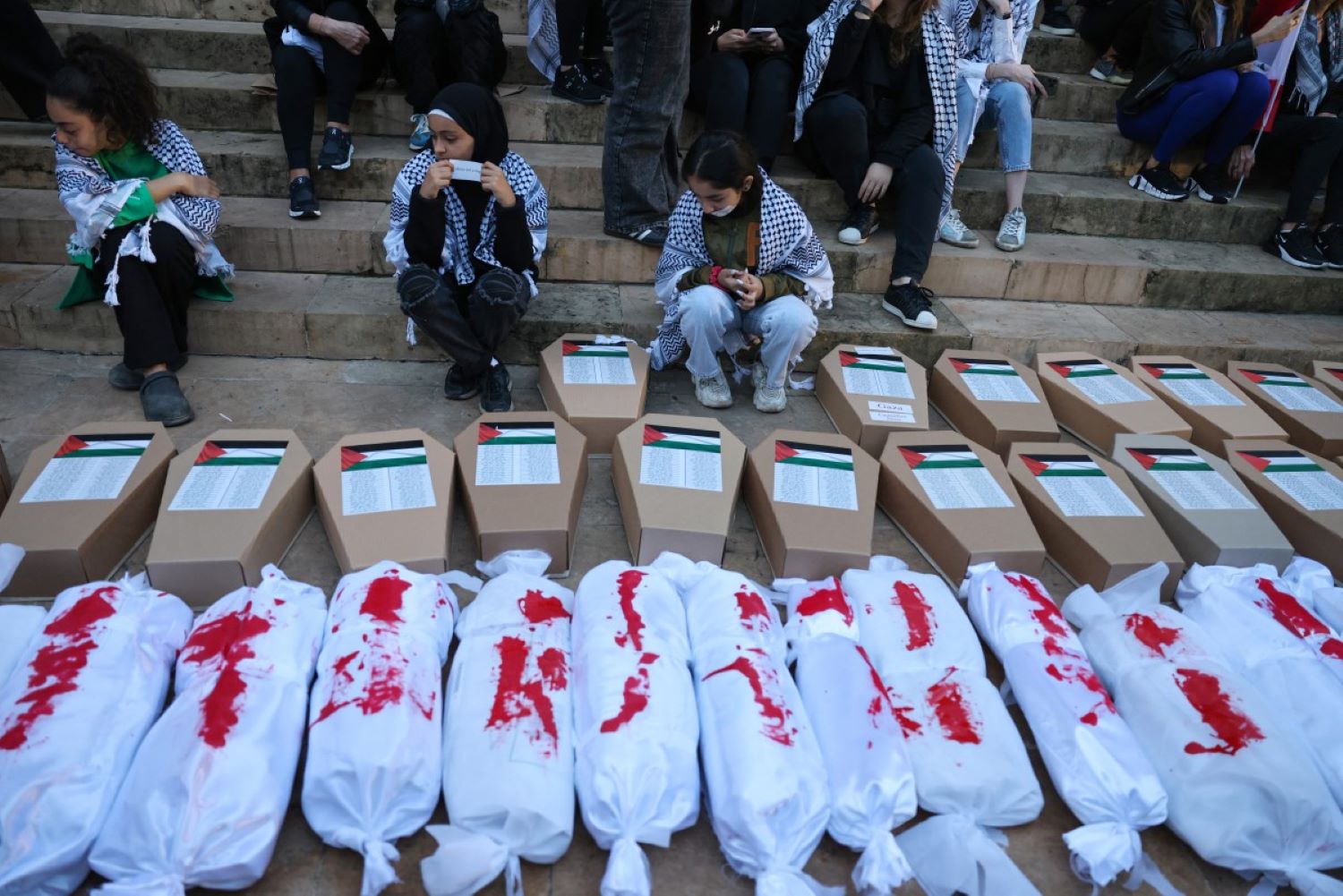JERUSALEM –Israeli forces maintained a relentless bombardment and ground invasion across Gaza two months after Hamas’s deadly attack sparked a war that has decimated the Palestinian territory and triggered an extraordinary UN bid for a ceasefire on Friday.
The fighting has left 17,487 people dead in Gaza, mostly women and children, according to the latest toll from the Hamas-run health ministry.
Israel has vowed to destroy Hamas over its unprecedented attack on October 7 when fighters broke through Gaza’s militarized border to kill around 1,200 people and seize hostages, 138 of whom remain captive, according to Israeli figures.
Vast areas of Gaza have been reduced to a wasteland. The UN says about 80 percent of the population has been displaced, facing dire shortages of food, fuel, water and medicine, and the growing threat of disease.
UN Secretary-General Antonio Guterres invoked the rarely-used Article 99 of the UN Charter to convene an emergency Security Council meeting on the war.
He called for the release of hostages, but said “the brutality perpetrated by Hamas can never justify the collective punishment of the Palestinian people”.
The World Health Organization reinforced his warning.
“People are starting to cut down telephone poles to have a little bit of firewood to keep warm or maybe cook, if they have anything available,” WHO spokesman Christian Lindmeier said.
“Civilisation is about to break down.”
Doctors Without Borders (MSF) said the Security Council was “complicit in the ongoing slaughter” and must vote to “lift the siege” on Gaza.
– Battles on multiple fronts –
Israel’s military said it had struck 450 targets in Gaza over 24 hours, showing footage of strikes from naval vessels in the Mediterranean.
The Hamas health ministry reported 40 dead near Gaza City in the north, and dozens more in Jabalia and the main southern city of Khan Yunis.
“May God punish those who can see our suffering and remain calm,” said one Gazan, Rimah Mansi, who told AFP they had lost “all those we love”.
Israel has lost 91 soldiers in Gaza.
It said two others were wounded in a failed bid to rescue hostages overnight, and that “numerous terrorists” were killed in the operation.
Hamas claimed a hostage was killed in the operation, and released a video purporting to show the body, which could not be independently verified.
Hamas rocket parts, launchers and other weapons as well as a one-kilometre tunnel were found at Al-Azhar University in Gaza City, the army said, as it warned residents to move west.
Many of the 1.9 million displaced Gazans have headed south, turning Rafah near the Egyptian border into a vast camp.
“It’s so cold, and the tent is so small. All I have are the clothes I wear, I still don’t know what the next step will be,” said Mahmud Abu Rayan, displaced from Beit Lahia in the north.
The death toll also rose in the Israeli-occupied West Bank, where Israeli forces shot dead six Palestinians on Friday, the territory’s health ministry said.
The armed wing of Hamas, the Ezzedine al-Qassam Brigades, said it had fired more rockets towards Israeli territory.
Protect civilians
An attack on the US embassy in Iraq deepened fears of wider regional conflict.
Salvoes of rockets were launched against the mission in Baghdad’s heavily fortified Green Zone, adding to dozens of recent rocket and drone strikes by pro-Iran groups against American or coalition forces in Iraq and Syria.
A further five attempted strikes on Friday targeted US and coalition troops in Iraq and Syria.
Thousands of Jordanians demonstrated near the US embassy in Amman to denounce Washington’s support for Israel.
French President Emmanuel Macron was the latest world leader to push for more aid to Gaza, urging Israeli Prime Minister Benjamin Netanyahu in a phone call to reopen the Kerem Shalom checkpoint that handled more than half of goods into the besieged territory before October 7.
The UN said 69 trucks carrying supplies and fuel had entered from Egypt on Thursday — well below the average 500 daily truckloads before the war.
US President Joe Biden — whose country provides billions of dollars in military aid to Israel — earlier urged Netanyahu to open “corridors” to allow civilians to move safely.
Hanukkah
Israelis remained deeply traumatised by the Hamas attack and fearful for the fate of hostages as they marked the Jewish festival of lights, Hanukkah, which began on Thursday.
A 138-branched menorah candelabrum was lit in Tel Aviv for the remaining captives.
The war has also led to deadly cross-border exchanges on the Lebanese frontier.
An AFP investigation into October 13 strikes in southern Lebanon that killed a Reuters journalist and injured six others, including two from AFP, found it involved a tank shell only used by the Israeli army in this region.
The nature of the strikes and lack of military activity in the immediate vicinity of the journalists indicate the attack was deliberate and targeted, the investigation found.
Amnesty International and Human Rights Watch said the strikes merit a “war crime” investigation.
Israel’s army said the strikes occurred in an “active combat zone” and were under review.

